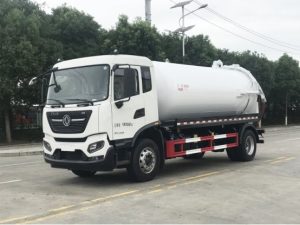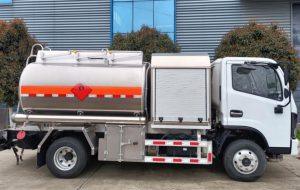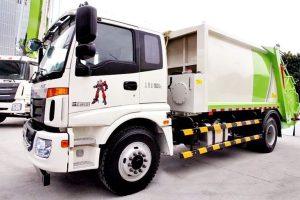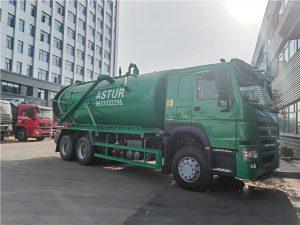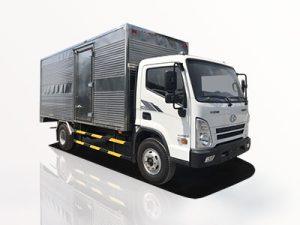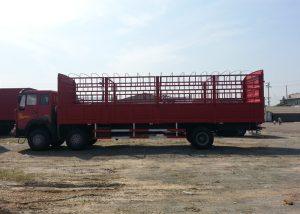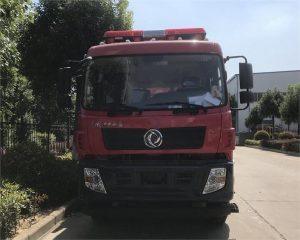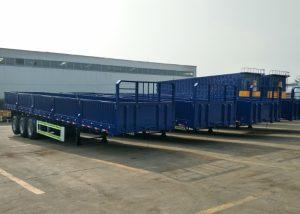Monday to Saturday - 8:00 -17:30
Climate Controlled Cargo Trailer: The Ultimate Guide
Climate controlled cargo trailers are becoming crucial in numerous industries for transporting goods that require specific temperature and humidity conditions. Understanding what these trailers are, their benefits, and how to choose one can significantly enhance your logistics operations and protect your valuable cargo.
What is a Climate Controlled Cargo Trailer?
A climate controlled cargo trailer is a type of trailer equipped with temperature and humidity control systems. These systems are essential for transporting items that are sensitive to environmental changes, such as perishable food, pharmaceuticals, electronics, and art. Unlike standard trailers, these specialized trailers maintain optimal conditions, ensuring that goods arrive at their destination in perfect condition.
Why Use a Climate Controlled Cargo Trailer?
1. Protection of Sensitive Goods
Many products, such as pharmaceuticals and food, have strict transportation requirements regarding temperature. For example, certain vaccines must be kept between 2°C and 8°C (35°F to 46°F) to remain effective. Climate controlled trailers ensure that these conditions are met consistently during transit.
2. Flexibility in Transport Options
Climate controlled trailers provide flexibility for businesses in scheduling and route planning. You can transport sensitive goods across longer distances or in various environmental conditions without worrying about spoilage or degradation.
3. Compliance with Regulations
Many industries are governed by strict regulations concerning the transport of temperature-sensitive materials. Using climate controlled cargo trailers helps ensure compliance with these regulations, avoiding fines and penalties.
Types of Climate Controlled Trailers
1. Refrigerated Trailers
Refrigerated trailers are designed primarily to keep cargo cool. They use mechanical refrigeration systems to achieve low temperatures suitable for food and pharmaceuticals. They are typically insulated to maintain temperature over long distances.
2. Heated Trailers
Heated trailers are ideal for transporting items that can be damaged by cold temperatures, such as certain types of chemicals, cosmetics, and electronics. These trailers often include electric heating systems that can maintain higher temperatures.
3. Multi-Temperature Trailers
Multi-temperature trailers can maintain different temperature zones in the same trailer. This is useful for transporting diverse products with varying temperature requirements. For example, you can transport frozen goods alongside fresh produce without compromising either.
Key Features to Consider
1. Insulation
High-quality insulation is crucial for maintaining temperature consistency. Look for trailers with dense insulation materials such as foam or composite panels, which minimize thermal exchange.
2. Thermocouples and Monitoring Systems
Advanced climate controlled trailers are equipped with thermocouples to monitor temperature at various points in the trailer. This technology allows for real-time monitoring and alerts to ensure the goods remain within the desired conditions.
3. Refrigeration Units
Research the type and efficiency of the refrigeration unit installed in the trailer. Energy-efficient units can help save on fuel costs and reduce the trailer’s overall environmental impact.
4. Airflow Control
Proper airflow is necessary to maintain consistent temperatures. Ensure that the trailer features adjustable vents and fans that allow proper circulation of air throughout the cargo area.
Cost Considerations
1. Initial Investment
The cost of acquiring a climate controlled cargo trailer can vary greatly, based on factors such as size, features, and brand. On average, prices can range from $10,000 to $40,000 or more for high-capacity models.
2. Maintenance Costs
Regular maintenance is essential for ensuring the reliability and longevity of climate controlled trailers. This includes checking the refrigeration system, monitoring insulation integrity, and maintaining the electronic systems. Budget for annual maintenance costs, which can range from $500 to $2,000, depending on the trailer type and usage.
3. Operating Costs
Operating a climate controlled trailer generally incurs higher fuel costs due to the energy required to power the climate control systems. Understand how operating costs will affect your logistics budget when using these trailers in your operations.
Practical Tips for Using Climate Controlled Cargo Trailers
1. Regular Inspections
Conducting regular inspections before and after each trip will help ensure that the trailer is operating correctly. Check for any signs of wear and tear on insulation, seals, and the refrigeration unit.
2. Load Cargo Strategically
Loading cargo strategically can enhance airflow and temperature maintenance. Avoid overloading, as it can restrict airflow and result in uneven temperature distribution.
3. Use Technology
Incorporate GPS tracking and temperature logging tools to monitor your cargo in real-time. These technologies allow fine-tuning of routes and give you peace of mind about the condition of your goods.
4. Train Your Staff
Ensure that all staff involved in the loading, unloading, and transportation processes are well-trained in handling climate-sensitive goods. Their understanding of temperature requirements will lead to better preservation of your cargo.
Climate Controlled Trailers vs. Standard Trailers
| Feature | Climate Controlled Trailers | Standard Trailers |
|---|---|---|
| Temperature Control | Yes | No |
| Insulation | High-quality insulation | Basic insulation |
| Cost | Higher initial and operating cost | Lower initial cost |
| Best For | Perishables, sensitive electronics | General cargo |
Environmental Impact of Climate Controlled Trailers
1. Energy Consumption
Climate controlled trailers consume more energy than standard trailers due to the need for refrigeration and climate control systems. Choosing energy-efficient models can help mitigate the environmental impact.
2. Eco-Friendly Alternatives
Consider electric refrigerated trailers as an eco-friendly alternative. These trailers can significantly reduce carbon emissions compared to traditional diesel-powered units.
3. Sustainable Practices
Implement sustainable practices in your logistics operations, such as optimizing delivery routes to reduce fuel consumption and adopting a reduce, reuse, and recycle philosophy in packaging materials.
Frequently Asked Questions (FAQ)
1. How much does it cost to rent a climate controlled cargo trailer?
Rental costs can range from $200 to $1,000 per day, depending on the size of the trailer and the rental company. Booking in advance and during off-peak times may offer better rates.
2. How do I maintain a climate controlled cargo trailer?
Regular maintenance involves checking the refrigeration system, inspecting seals and insulation, ensuring proper functioning of the monitoring equipment, and keeping the trailer clean and free of ice buildup.
3. What items are suitable for transport in a climate controlled cargo trailer?
Climate controlled cargo trailers are ideal for transporting perishable foods, pharmaceuticals, electronics, artwork, and any items sensitive to temperature fluctuations.
4. Can I install a climate control system in my existing trailer?
Yes, it is possible to retrofit existing trailers with climate control systems, though it can be expensive. Evaluate the cost against the value it will bring to your logistics operations.
5. What are the benefits of multi-temperature trailers?
Multi-temperature trailers allow you to transport different types of cargo that require varying temperature settings, effectively optimizing shipping loads and reducing costs.
6. Are climate controlled cargo trailers suitable for long-distance transport?
Absolutely. Climate controlled cargo trailers are specifically designed for long-distance transport, maintaining the required conditions throughout the journey, making them perfect for cross-country shipping of temperature-sensitive goods.


